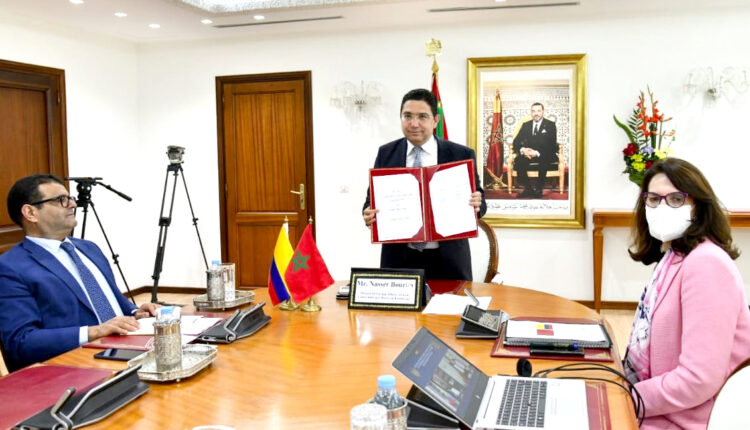Morocco and Colombia Sign Four Agreements
The Kingdom of Morocco and the Republic of Colombia signed two bilateral agreements and two memoranda of understanding (MoU) on Tuesday during a videoconference
The Kingdom of Morocco and the Republic of Colombia signed two bilateral agreements and two memoranda of understanding (MoU) on Tuesday during a videoconference held between the Minister of Foreign Affairs, African Cooperation and Moroccans residing abroad, Nasser Bourita, and the Minister of Foreign Affairs of Colombia, Claudia Blum.
The first air services agreement aims to gradually organize the reciprocal opening of the air markets of the two countries and includes provisions relating to the granting of traffic rights, operating authorizations for air transport companies, fees and customs duties, commercial representation of companies, tariffs and revenue transfers.
The second agreement, corresponding to the mutual visa exemption for holders of ordinary passports, aims to exempt nationals of a country holding an ordinary passport and holders of a diplomatic passport from the visa requirement for short term residence (90 days) in the other country.
In addition to that, two memoranda of understanding were signed on this occasion, including the first by the two foreign ministers relating to cooperation in the fight against world drug problems with the aim of promoting cooperation in the field of drug abuse. Fight against drug trafficking as well as coordination between the competent authorities of the two countries.
Associating the Moroccan International Cooperation Agency (AMCI) and the Presidential Agency for International Cooperation of Colombia (APC-COLOMBIA), the second memorandum of understanding, signed by the respective directors of the two cooperation agencies, Mohamed Methqal and Ángela Ospina of Nicholls, aims to establish a cooperative relationship between the Cooperation Agencies of the two countries within the framework of South-South cooperation by implementing initiatives of academic, cultural, scientific and technical cooperation, and to encourage the exchange of experiences, management and exchange of expertise and know-how in the priority areas identified by the two parties.


